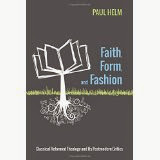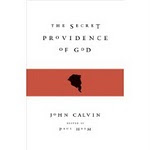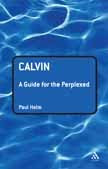I think it would be worthwhile to return to the question of whether in sanctification, believers have a duty to obey the law. This came up in an earlier post concerned with the place of the law in sanctification, the third use of the law as it is sometimes called. The question arises also in connection with the free offer of the gospel as defended by Andrew Fuller in The Gospel Worthy of All Acceptation.
Andrew Fuller
Andrew Fuller
There is no question that Andrew Fuller advocated an account of faith and of preaching that returned it to Reformation principles; a general, free, indiscriminate offer of the Gospel, and justification by faith as reliance upon the Christ preached. But fresh controversies lead to new emphases. As Heraclitus said, it is impossible to step into the same river twice.
Fuller placed a good deal of emphasis on faith as a duty, and his views came to be known as ‘duty faith’ and ‘Fullerism’, terms suggesting something distinctive. In the book he returns to the matter several times. Most interesting is his discussion in his Concluding Reflections. Here he seems to qualify his earlier emphasis. He recognizes here that faith cannot be a duty straightforwardly, since the invitations of grace are not founded merely on divine authority, or on God’s goodness, but in particular on God’s mercy and grace. He here emphasizes the important qualification, that ‘Though believing in Christ is a compliance with a duty, yet it is not as a duty, or by way of reward for a virtuous act, that we are said to be justified by it….we must stand accepted in the Beloved’. Yet even with this vital qualification, we may ask, is faith as a compliance with a duty a dominant note in the New Testament? Sinners may have a duty to repent but do they, in the same sense, have a duty to believe?
Perhaps Fuller was at his most nervous here, at the very heart of his position, as is shown by the fact that he discusses this matter first at proposition III of Part II, then in his Answers to Objections, and finally in his Concluding Reflections. Fuller says that though the Gospel is a message of pure grace it ‘virtually requires’ obedience. But if something virtually requires obedience then it requires obedience. I think that by virtual obedience Fuller means that, like the law, the invitations of the gospel call for our compliance, yet they are not as the law is, divine commands, but the gospel invitations. That's my guess.
Suppose that the Queen, In addition to imposing on me and all her subjects the duty to keep the laws that bear her signature, invites me to one of her garden parties (as I once was). You might say that that’s an act of kindness, a matter of grace or of undeserved goodness, not of bare sovereign authority. It follows I have no duty to go to her party. Besides, another duty that I already have might take precedence over the invitation. Nevertheless, I am honoured to receive the invitation and it does not escape me that the one who invites is the one who is the sovereign, my sovereign. So the invitation is the sovereign’s invitation. We might say that the sovereign’s invitation is worth something, in the way that other invitations are worth less, or nothing at all. Even so it is possible to decline the invitation without penalty in the way that it is not possible to flout the law without penalty. So no one invited to the party has an obligation to accept.
The analogy of the Queen's garden party to the invitations of the gospel is, like any analogy, imperfect. Yet it may bring out - I put it no higher – that invitations differ from laws. Perhaps that was what Christ was stressing in his analogy of the gospel to a marriage feast. Not everything that God says creates in the one addressed an obligation to comply. These analogies helps us to see, perhaps, that gracious invitations are different from commands.
Sanctification
There is a parallel situation in the case of sanctification, much-discussed at present. Is sanctification required? This is one question. But the inseparability of sanctification from justification, and its being required, is (I think) often confused with the question, is sanctification a duty? It is required, but is it a duty? Two different questions. One has to do with a logical requirement, the other with a legal requirement, or a moral requirement, or with both. If someone says that being justified, there is no need for sanctification, they fail to see the requirement of sanctification. And in saying this they have not only misunderstood sanctification but justification too. For each is inseparable from the other, the two-fold gift of Christ to his people. But to say that sanctification consists in keeping commands hasn’t quite struck the note and emphasis of the NT.
If I think that justification is all that is needed, or that Christ is imputed to a sinner for sanctification as he is for justification, what’s the mistake? It is the mistake of thinking that as a justified sinner there is nothing more to do. But the NT is full of imperatives to the people of God. For example, Paul said to the Ephesians, be renewed in the spirit of your minds. (4.23) But this, it seems to me, is a kind of command that can only be obeyed indirectly. It involves putting on the new man, (as Paul says) and as a consequence living in a certain way. This way can often be mapped on to the commands of God, or the commands on to it, yet such living is not simply a matter of obeying these commands, but first of understanding what it means to profess regeneration. In other words, we leave the world of simply endeavouring to keep the commands of God, and seek to understand a life that is lived from the inside out. There are various ways the NT has of depicting such a life – living as those who are alive from the dead, living as children of God, walking in love. The emphasis follows on having a new life and a new outlook, and being fruit, growing in grace. Living in disregard of the commands of God is a sign of failure, but it does not follow that keeping the commands of God is a sign of success.
Immanuel Kant contrasted the sense of duty with what he called 'a holy life'. If we do certain acts as duties, dutifully, the requirements in question bear down upon us. We feel pressured to do what a part of us, perhaps the whole of us, does not want to do. We have to do it. Our action is (Kant said) heteronomous. If, somehow, we have internalised the norms we discern in the commands, if we want to do them in the core of our person, then, Kant also said, we possess (in his sense) a holy life. We act autonomously. We no longer have any duties. Or to the extent that we internalise the norms, in this sense we possess a holy life. (I don't think Kant said this bit, on reflection, but he may have.) We do the substance of what are duties but not as duties. ('Whose service is perfect freedom'.)
Immanuel Kant contrasted the sense of duty with what he called 'a holy life'. If we do certain acts as duties, dutifully, the requirements in question bear down upon us. We feel pressured to do what a part of us, perhaps the whole of us, does not want to do. We have to do it. Our action is (Kant said) heteronomous. If, somehow, we have internalised the norms we discern in the commands, if we want to do them in the core of our person, then, Kant also said, we possess (in his sense) a holy life. We act autonomously. We no longer have any duties. Or to the extent that we internalise the norms, in this sense we possess a holy life. (I don't think Kant said this bit, on reflection, but he may have.) We do the substance of what are duties but not as duties. ('Whose service is perfect freedom'.)
Paul’s habitual way of teaching us how to behave is to emphasise that Christians are new people – ‘How can we who died to sin still live in it?’ , ‘Put off the old self….be renewed in the spirit of your minds….put on the new self, created after the likeness of God in true righteousness and holiness’….'If then you have been raised with Christ, seek the things which are above, where Christ is'….'For we are all children of light, children of the day…so then let us not sleep as others do, but let us keep awake and be sober….'And he writes of gifts, graces, and Peter of virtues. Lists of them.
If we ask, how should we then live, the answer is, by the norms and values as expressed in the Decalogue, what Calvin called ‘the eternal law’, expressed, he thought, in the Golden Rule. But (ideally) not as duties, even though in our present far-from-perfect state, expressing such norms in living - as distinct from talking about them – may be irksome and difficult. But for new men and women in Christ 'doing our duty' is not quite the best way of expressing this, is it? Yet if all else fails then duty it had better be.








